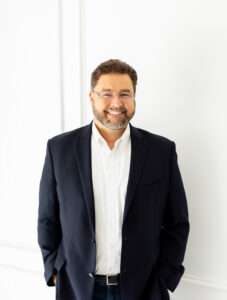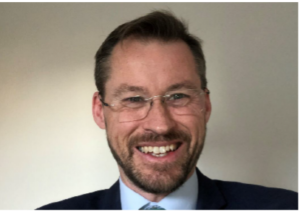Tuesday, April 23, 2024 - Thursday, April 25, 2024
Post Tags
Course Chapters
- 1SPE Webinar Series: Virtual Workshop - Transatlantic Plugging and Abandonment Operations-Day 1Media Type: Video
One size doesn’t fit all, and land is the one space where we can really go for cheap and effective, without forgetting the expensive and effective when it is really required. Being able to assign resources to the wells that most need them and ensuring that we can fix wells the first time around without expensive trial-and-error will be a key factor for the financial health of the Oil & Gas industry, will spur the development and adaptation of frugal technologies, and support the growth of a rich ecosystem of suppliers of services and products. Delegates from license holders, operators, regulators, and service companies will benefit from discussing past successes and future challenges. Players in higher-cost provinces can also contribute – and bring home a few tricks on how to save costs and improve performance. Sponsored by: Gold Sponsor - BiSN

Day 1-Tuesday, April 23, 2024 | 08:00AM – 1:00PM CT Session 1: Best Practices in P&A (a regulatory approach) 1400-1530 [UTC +0] Chairs: Steven Canny Speakers: Miles Ponsonby, Shanna Nolan, and Leah Davies Session Description: Engineers like to differentiate and create custom solution to suit specific risk profiles. At the same time they relish a level playing field, with the same regulatory approach worldwide so that solutions developed in e.g., Alberta can be applied in Algeria with a minimum of red tape. How can we help spread best practice and standards? Join the session to discuss the trade-off between custom fit and country specific regulation when assuring integrity for a very, very long time.
1530-1600: Coffee Break
Session 2: Monitoring Abandoned Wells (TA and PP&A), locating wells, emissions, and the worst offenders 1600-1730 [UTC +0] Chairs: Pierre Edouard Vincent and Susan Nash Speakers: Monia Procesi, Mary Kang, Hari Viswanathan, and Adam Peltz Session Description: How can we manage a legacy of wells not always properly identified or tracked, in different areas of the world? What steps can we take to identify, prioritize and manage risks, or even current impact from offenders (emissions, considering the current focus on methane)? These questions and more will be discussed during this session, with representatives from various regions of the world. Sponsored by:
1730-1800: Coffee Break
Session 3: Future-Proofing P&A 1800-1930 [UTC +0] Chairs: Hunter Dunham Speakers: Keith Wise and Carl Lakner Session Description: In an evolving field with infinite opportunities for subsurface utilization, how should we go about plugging and retiring wells today with consideration for the future? How can we make this end-of-life operation cost effective? Should it be "cost effective" or “no expense spared"? What are the critical elements to target for a P&A to be truly permanent? It is imperative we discuss these challenges and prevent critical events when our abandoned wells will be impacted by future development. - 2SPE Webinar Series: Virtual Workshop - Transatlantic Plugging and Abandonment Operations-Day 2Media Type: Video
One size doesn’t fit all, and land is the one space where we can really go for cheap and effective, without forgetting the expensive and effective when it is really required. Being able to assign resources to the wells that most need them and ensuring that we can fix wells the first time around without expensive trial-and-error will be a key factor for the financial health of the Oil & Gas industry, will spur the development and adaptation of frugal technologies, and support the growth of a rich ecosystem of suppliers of services and products. Delegates from license holders, operators, regulators, and service companies will benefit from discussing past successes and future challenges. Players in higher-cost provinces can also contribute – and bring home a few tricks on how to save costs and improve performance. Sponsored by: Gold Sponsor - BiSN

Day 2-Wednesday, April 24, 2024 | 08:00AM – 1:30PM CDT Session 4: Design considerations, including CCS 1400-1530 [UTC +0] Chairs: Katherine Beltran Jimenez Speakers: Ruth Thomas, Jaap Bezemer and Ben Hern Session Description: Restoring the caprock using cement. Easy. Except: where exactly do we set the two eternal barriers? What are the failure modes and the design scenarios we should follow? And how about alternative materials: do we get to shorten our isolation length? During this session we will discuss how to design robust barriers, especially when permeable formations pressure changes - because of water disposal or CO2 injection.
1530-1600: Coffee Break
Session 5: Integrity verification for eternity and beyond 1600-1730 [UTC +0] Speakers: Kamaljeet Singh, Kirk Harris and Remke Ellis Session Description: Good log, good cement. How about a so-so log, say when there’s a mud layer separating creeping shales and casing? Does it mean we must mill a section? It’s easy to figure out if there can be a blow-out, but how about a small gas leak? Do we actually need cement logs to verify hydraulic isolation? Come to this session to find out how to verify barriers, old and new, in your well.
1730-1800: Coffee Break
Session 6: Safe, Reliable, Repeatable, Efficient Operations 1800-1930 [UTC +0] Chairs: Willem Boon, Steven Canny Speakers: Christian Rosnes, Ruari Truter and Steven Allan Canny Session Description: Across the globe, regulatory bodies are evaluating financial assurance requirements for oil and gas operations, leading many companies to realize that it is not profitable to take some wells to their final stage of life. This creates a large set of legacy wells that are passed on to previous title holders, joint venture partners, or even local government. If you are one of these entities and uncertain of where to start or how to manage a set of wells left at your front door, come listen to experts in mature asset field decommissioning and how it can be safely, reliably, and efficiently executed. - 3SPE Webinar Series: Virtual Workshop - Transatlantic Plugging and Abandonment Operations-Day 3Media Type: Video
One size doesn’t fit all, and land is the one space where we can really go for cheap and effective, without forgetting the expensive and effective when it is really required. Being able to assign resources to the wells that most need them and ensuring that we can fix wells the first time around without expensive trial-and-error will be a key factor for the financial health of the Oil & Gas industry, will spur the development and adaptation of frugal technologies, and support the growth of a rich ecosystem of suppliers of services and products. Delegates from license holders, operators, regulators, and service companies will benefit from discussing past successes and future challenges. Players in higher-cost provinces can also contribute – and bring home a few tricks on how to save costs and improve performance. Sponsored by: Gold Sponsor - BiSN

Day 3-Thursday, April 25, 2024 | 08:00AM – 1:30PM CDT Session 7: Well Abandonment Technology Roadmaps and Initiatives 1400 - 1530 [UTC +0] Chairs:Bart Joppe, Baker Hughes and Johan Kverneland, TotalEnergies Speakers: Johan Kverneland, Hans Fjellanger and Bruce Cardno, Session Description: Development of new Technology is key to reduce the Total Costs of Operation for Well Abandonment. Reducing the surface footprint from Rig to Rigless operations and Riser to Riserless operations typically results in a lower overall well abandonment costs and environmental impact from operations. Improvements of barrier placement methodologies and downhole technologies are the enabler to through-tubing well abandonment and reducing the aforementioned surface footprint. This session will provide an overview of Well Abandonment technology development and collaboration initiatives. Multiple speaker will share their perspectives and conclude in a panel discussion.
1530-1600: Coffee Break
Session 8: Alternative Barrier Material Initiatives 1600-1730 [UTC +0] Chairs: John Moffat, Weatherford and Pierre Edouard Vincent / Jonathan Heseltine Speakers: Brian Willis, Fred Wassmuth, Eric van Oort and Tron Golder Kristiansen Session Description: As the Industry strives for efficient/cost effective P&A, driving initiatives for alternative barrier materials and placement techniques, how is the industry ensuring barriers can be placed to satisfy the "eternity" requirements? In this session we will harness the power of caprock with the latest on Shale-as-a-barrier.
Coffee Break
Session 9: Practical solutions for delivery, in various areas 1800-1930 [UTC +0] Chairs: Katherine Beltran Jimenez and Pierre Edouard Vincent Speakers: Dan Arthur, Dwayne Purvis, Amanda Veazey and Graham Ramalho Session Description: In that final session of the workshop we will cover the wells in the wider context (expanding the coverage worldwide), then consider some options for funding P&A efforts, before reviewing practical examples and challenges onshore North America (Orphan wells plugging) and offshore Europe (innovative mutualized P&A campaign).
Credits
Earn credits by completing this course1.2 CEU credits12 PDH creditsSpeakers





































